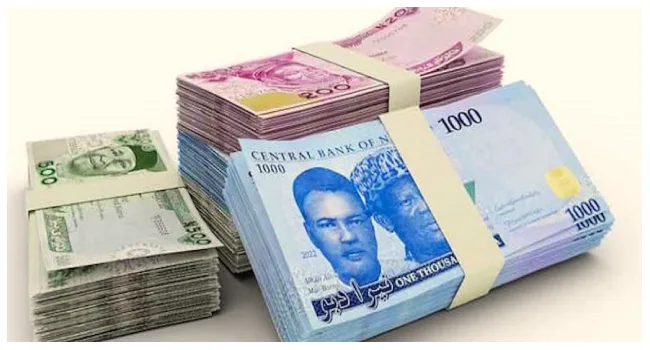The naira depreciated to ₦1,629 per dollar on Tuesday in the Nigerian Foreign Exchange Market (NFEM), despite a $688.8 million intervention by the Central Bank of Nigeria (CBN).
Data from the apex bank revealed that the indicative exchange rate for the naira rose from ₦1,600 per dollar last Friday to ₦1,629 per dollar, marking a ₦29 depreciation.
In the parallel market, the naira also weakened, dropping to ₦1,570 per dollar from ₦1,565 per dollar over the weekend. As a result, the gap between the parallel market and the NFEM rate widened to ₦59 per dollar, up from ₦35 per dollar the previous week.
In March, the naira depreciated by 2.4% at the Nigerian Autonomous Foreign Exchange Market (NAFEM) window and 2.6% in the parallel market compared to February.
According to the latest Afrinvest Monthly Market Report, the naira dropped to ₦1,536.82 per dollar at the NAFEM window and ₦1,530.00 per dollar in the parallel market.
AIICO Capital, in its March macroeconomic report, also noted that the naira faced significant demand pressure. Despite the CBN’s intervention with substantial dollar sales amounting to $688.8 million, the naira weakened by 2.97% month-on-month, closing at ₦1,536.82 per dollar, down from ₦1,492.49 per dollar at the start of March.
The report highlighted that demand remained strong, particularly from foreign portfolio investors and local corporations. In the parallel market, the naira mirrored this trend, depreciating by about ₦43.50 to ₦1,536 per dollar.
Although liquidity improved in the middle of the month due to CBN interventions, demand continued to outstrip supply. AIICO Capital noted that in the final week of March, despite continued dollar sales by the CBN and a slight appreciation of 0.5 basis points, the naira remained under pressure. The report also noted that external reserves fell by approximately $110 million to $38.31 billion.
Looking ahead, AIICO Capital expects the CBN to continue supporting liquidity to stabilize the naira in the short term. However, the report warned that global risks, such as potential U.S. tariffs and retaliatory measures, could lead to increased volatility and capital flight.
Over the past week, the naira experienced heightened volatility in the interbank market. Early in the week, the currency remained relatively stable, trading between ₦1,525 and ₦1,535 per dollar, supported by consistent CBN interventions and moderate offshore inflows. However, by midweek, the naira sharply depreciated as offshore demand surged, compounded by weakened oil prices following an OPEC+ supply hike and global risk-off sentiment triggered by U.S. tariff announcements.
This surge in demand and limited supply pushed the naira to as high as ₦1,570 per dollar. Despite further CBN intervention, the naira depreciated by 1.97% week-on-week, closing at ₦1,567.02 per dollar, while foreign reserves declined by $149 million to $38.15 billion.


